Home » Esotericism in the Academy » Centre HHP » Meet the staff
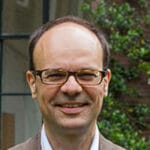
Marco Pasi is Associate Professor in the History of Western Esotericism in the Modern Period and is the Director of the HHP Centre.
Marco graduated in Philosophy at the University of Milan (1994). He then obtained his PhD in Religious Studies, specializing in the History of Western Esotericism under the supervision of Antoine Faivre at the École Pratique des Hautes Études in Paris (2004).
He has been a Frances Yates Fellow at the Warburg Institute, a Research Fellow at the Netherlands Institute for Advanced Studies in the Humanities and Social Sciences (NIAS) and at the Max Weber Kolleg (University of Erfurt), and has been a Visiting Professor at the Swiss Federal Institute of Technology (ETH) in Zurich, at the University of Cagliari, and at the University of Turin. He has been the General Secretary of the European Association for the Study of Religions (2014-2019) and the Co-Chair of the Western Esotericism Group at the American Academy of Religion (AAR). He is currently the Chief Editor of the Aries Book Series (Brill).
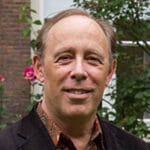
Wouter J. Hanegraaff is Professor in History of Hermetic Philosophy and Related Currents.
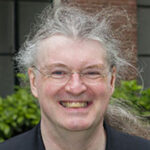
Peter J. Forshaw is Associate Professor in History of Western Esotericism in the Early Modern Period.
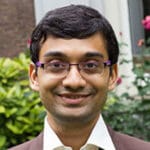
Mriganka Mukhopadhyay is a PhD researcher in the Modern Period at the HHP Centre.
Mriganka was born in Kolkata in 1990. He pursued BA (honours) in History from Kolkata’s erstwhile Presidency College (2012) and completed his MA in History from Presidency University (2014) where he was awarded with a gold medal for coming first in his batch.
He then pursued MPhil from Ambedkar University Delhi (2017) where he wrote a dissertation on the history of the Bengal Theosophical Society and Bengali intellectual elites’ interest on esotericism.
His academic interests include history of the Theosophical Society in colonial India and the activities of Indian theosophists in that period.
In the PhD project his particular focus is on the theosophical movement in Bengal. He examines how theosophical ideas disseminated in Bengal and influenced it’s social, political, religious and cultural life in the 19th and 20th centuries.

In 2021, Liana Saif (PhD, 2012) joined the HHP Centre as Associate Professor in the History of Medieval Esotericism.
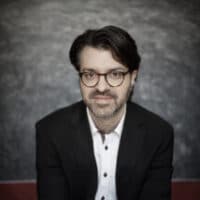
Dylan Burns is Assistant Professor in the History of Western Esotericism in Late Antiquity.
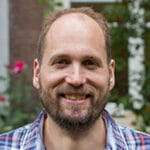
John M. MacMurphy is a PhD student at the HHP Centre.
John holds a BA in Psychology from the University of California at Berkeley and a Research MA (Cum Laude) in Religious Studies (Western Esotericism) from the University of Amsterdam where he focused on Jewish Mysticism. His RMA thesis titled “Abraham Abulafia and the Academy: A Reevaluation” was supervised by Peter Forshaw and Wouter Hanegraaff. Primary research interests include: alchemy, magic, altered states of consciousness and the reception of both theoretical and practical applications of Kabbalah within the purview of the European occult milieu and related traditions.
Hedvig Martin is a PhD candidate at the HHP Centre with a project on the Swedish occult painter Hilma af Klint (1862-1944), funded by the Axel and Margaret Ax:son Johnson Foundation for Public Benefits. She has an RMA in History from Södertörn University in Stockholm, Sweden, with the thesis “Hilma af Klint and The Five 1896-1907” (2018). Related research interests include art history and occultism in fin-de-siecle Europe, Western esotericism in Sweden, and altered states of consciousness and its neuropsychology.
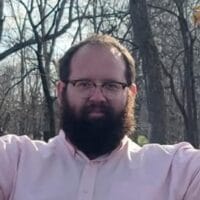
Dell J. Rose is a PhD student at the HHP Centre.
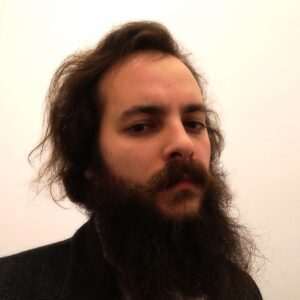
Giulio Dalla Grana is a PhD student at the HHP Centre.
Giulio is pursuing a joint-Ph.D. with the University of Turin (Department of Historical Studies) and the University of Amsterdam (Centre for the History of Hermetic Philosophy and Related Currents). In 2019, he graduated in Political Sciences and International Studies in a double-degree program between the University of Padua and the Jagiellonian University in Krakow. His research interests are mainly focused on the relations between political power and religious authority on the one hand, and on the influence of esoteric traditions on political and religious thought on the other. His doctoral project will have a duration of three years, from October 2020 to December 2023. The project is funded by the University of Turin. His doctoral research is devoted to the Polish mystic Andrzej Towiański (1799-1878) and his Italian disciples. The project investigates the reception of Towiański’s religious doctrine by the Roman Catholic Church, and the socio-political contribution of the Italian Towianists in the second half of the nineteenth century.
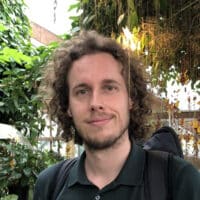
Tjalling Janssen is a PhD student at the HHP Centre.
After a vocational degree in graphic design (2015) and a one year of teacher training in History (2017), Tjalling received BA (2020) and RMA degrees (2022, cum laude) in Religious Studies, the last two both at the University of Amsterdam. During his RMA, he was a founding member of the HHP Student Association. His RMA thesis, supervised and assessed by Peter Forshaw and Liana Saif, was a reception history of elementals from the sixteenth to the late nineteenth century covering both natural philosophy and literature, investigating the significance of gender and its cultural transformations. His current PhD project at the HHP, supervised by Peter Forshaw and Wouter Hanegraaff, also deals with these beings, but instead mainly focusses on how they are embedded in the natural-philosophical context of the sixteenth and seventeenth centuries, now looking at the relationship between humanity and the natural world, and how understanding this aspect can contribute to the history and philosophy of ecology. His overall research interests include intermediary beings, alchemy, magic and Paracelsianism in modernity broadly construed (sixteenth to early twentieth century), and how these themes and schools of thought have influenced and have been influenced by things such as (natural) philosophy, spirituality, our relationship to the environment and other topics with a social component.
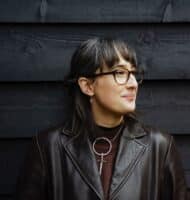
Brennan Kettelle is a PhD student at the HHP Centre.
Brennan Kettelle holds a Research Master’s degree in Religious Studies, with a focus on Western esotericism (University of Amsterdam, 2021, cum laude), as well as a Master’s degree in Gender & Cultural Studies (Simmons University, 2018, cum laude). Her PhD project – supervised by Marco Pasi – investigates historical associations between the religio-mythic demoness Lilith and queerness within nineteenth-century literary, artistic, and occult discourses. Aiming to foster intersectional collaboration between queer studies and esotericism studies, Brennan is more broadly interested in examining both queer currents within esoteric literature, orders, and figures, as well as esoteric themes within queer subcultures, politics, and histories. As such, her current research also focuses on the lesbian-pagan poetess Renée Vivien (1877-1909), analyzing the occult influences of her queer, satanic oeuvre. Brennan’s other academic interests include nineteenth and twentieth-century occultism, sex magic, esotericism and politics, and conspirituality.
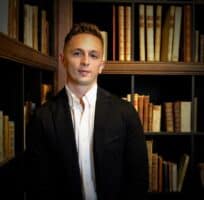
Corey Andrews is a PhD student at the HHP Centre.
Corey is an American with a military background and current PhD candidate at the center for the History of Hermetic Philosophy and Related Currents at the University of Amsterdam.
He received a Bachelor’s degree (Summa Cum Laude) in Biological Anthropology and Religious Studies from the University of Massachusetts in August of 2019 before moving to Amsterdam to pursue a two-year Research Master’s degree at the University of Amsterdam. In October of 2021 he graduated with a Research Master’s degree with Cum Laude distinction from the History of Hermetic Philosophy department at the University of Amsterdam.
His PhD project, which began in June of 2022 focuses on the theme of ‘Pansophia’ in early modern European thought and occult philosophy, especially as it relates to Rosicrucianism, John Amos Comenius (1592-1670) and esoteric Christian symbolism in 16th and 17th century book culture.

Vincent Roy-Di Piazza is a guest researcher at the HHP Centre.
Vincent Roy-Di Piazza is a postdoctoral Vossius Fellow 2023 at the HHP Centre.
Vincent is an early modern historian of science, religion, and northern Europe, and a specialist of Emanuel Swedenborg. Vincent obtained his DPhil in history of science in 2022 from the University of Oxford, having previously graduated from the Sorbonne, the Conservatoire de Paris (CRR Paris), the Ecole Pratique des Hautes Etudes, and the Ecole Normale Supérieure de Paris. After his PhD, Vincent worked as a British Arts and Humanities Research Council postdoctoral research fellow at the University of Oxford, and he is currently a postdoctoral fellow at the Hagströmer Library, Karolinska Institute in Stockholm, having previously held research fellowships at the Huntington Library, the Fondazione Cini, and the Swedish Royal Academy of Sciences. His latest peer-reviewed publications include journal articles in the Intellectual History Review, Etudes Germaniques, and the Annals of Science.
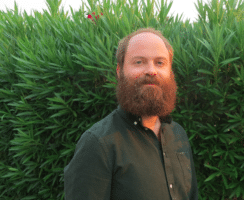
J. Christian Greer is co-director and lead instructor for the HHP's intensive seminars programmes, "Visions of the Occult: Introduction to (Western) esotericism" and "Arcane Worlds: New Directions in the Study of Esotericism."
Dr. J. Christian Greer is a scholar of Religious Studies with a special focus on psychedelic culture. He holds a MDiv from Harvard Divinity School, Harvard University, as well as a MA and PhD (cum laude) in Western Esotericism from the University of Amsterdam, Netherlands. While a postdoctoral researcher at Harvard Divinity School, he led a series of research seminars on global psychedelic spirituality, which culminated in the creation of the Harvard Psychedelic Walking Tour, a free audio guide detailing how the Harvard community has shaped the modern history of psychedelic culture. He is the co-founder and co-chair of the Drugs and Religion programme unit at the American Academy of Religions.
His latest book, Kumano Kodo: Pilgrimage to Powerspots (co-authored with Dr. Michelle Oing) analyzes the pilgrimage folklore associated with the rainforests of Japan’s Kii Peninsula. His forthcoming book, Angelheaded Hipsters: Psychedelic Militancy in Nineteen Eighties North America (Oxford University Press), explores the expansion of psychedelic culture within fanzine networks in the late Cold War era. He has held teaching positions at Harvard University, Yale University, and is currently a lecturer at Stanford University. Additionally, he is director of “The Psychedelic Universe: Global Perspectives on Higher Consciousness,” an intensive summer school seminar hosted by the University of Amsterdam’s Graduate School of Social Sciences in association with the HHP. He is also co-director and lead instructor for “Visions of the Occult: Introduction to (Western) esotericism” (offered online each winter) and “Arcane Worlds: New Directions in the Study of Esotericism” (offered every summer), both intensive seminars hosted in collaboration with the Graduate School of Social Sciences and the HHP.
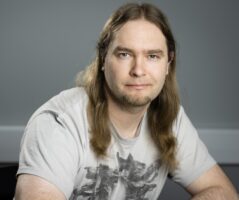
Olli is a doctor of social sciences and a postdoctoral scholar of philosophy who spends the first half of 2024 as a visiting researcher at the HHP centre.
Olli wrote both his MA (2011) and PhD (2020) theses in the University of Jyväskylä (Finland). Both theses were concerned with the concept of evil, especially in Immanuel Kant and F.W.J. Schelling, and how their central ideas have been adopted in contemporary philosophy, which went through a sort of “renaissance of evil” in the 1990´s, to borrow Lars Svendsen´s terminology. Since completing his PhD Olli has studied esotericism from a philosophical perspective in the University of Helsinki, and published two articles in SATS: Northern European Journal of Philosophy and Environmental Philosophy. His current research project Esotericism in Philosophy from the 19th Century to the Present (2022–2025) is funded by the Academy of Finland.
At the moment Olli is editing a compiled volume Philosophical Perspectives on Esotericism: From the 19th Century to the Present (to be published by Routledge), which includes philosophers interested in esotericism and philosophically minded scholars of esotericism worldwide from established names such as Glenn Alexander Magee, John Ó Maoilearca, and Jason Josephson-Storm to rising PhD scholars. Olli is also working on several articles that address various connections between academic philosophy and esotericism from the time of German idealism to present questions in environmental philosophy, feminist philosophy, political philosophy, and philosophy of mind.

Sangyun is a PhD student at the Graduate School of International Cultural Studies, Tohoku University and a visiting researcher at the HHP Centre.
Sangyuns research focuses on the history of modern Japanese religion, especially the relationship between the “Occult Boom” of the 1970s and Japanese esoteric Buddhism. Her recent articles include “1970 nendai no nihon ni okeru ‘Okaruto’ gainen no juyō to tenkai: ‘Mikkyō būmu’ to no kankei o chūshin to shite” [The Reception and Development of the Concept of ‘the Occult’ in 1970s Japan: On the ‘Mikkyō Boom’ and its influence] (Gakusai nihon kenkyū 1, 2021), “Sengo nihon ni okeru mikkyō to kagaku: Hirai Tatsumi no kitōron o chūshin to shite” [Mikkyō and Science in Postwar Japan: Hirai Tatsumi’s Idea of Prayer] (Kindai Bukkyō 28, 2021). She is currently working on her doctoral project entitled “Mikkyo and the Occult in Postwar Japan: The Perspective of Global Religious History,” which examines the revival of esoteric Buddhism in postwar Japan in relation to the appropriation of alleged New Age ideas. By tracing the process of entanglement between Western “esoteric” ideas and Japanese religious tradition, she aims to propose an alternative history of esotericism from an East Asian perspective.
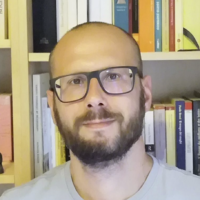
Dr. Francesco Baroni is a lecturer at the University of Lausanne and a guest researcher at the HHP Centre.
Born in 1980 in Florence, Italy, Francesco earned an MA in Medieval Studies from the Paris-Sorbonne University (2005) and a PhD in Religious Studies from the École Pratique des Hautes Études in Paris (2009, cum laude). He was a postdoctoral researcher at the Italian Institute for Historical Studies (2010–2012), a resident member at the Swiss Institute of Rome (2014–2015), and a fellow at the Cini Foundation of Venice (2020). Since 2013, he has been affiliated with the University of Lausanne, where he teaches the course Introduction to the History of Western Esotericism as a lecturer.
His research primarily explores the evolution of Western esotericism since the 19th century, including Christian esotericism, perennialism, New Age movements, and transpersonal psychologies.
Currently, he is conducting a research project that delves into the Catholic Church’s engagement with spiritualism, occultism and theosophy in Italy from 1838 to 1919, focusing particularly on the role of the Holy Office and the Vatican. This project is funded by the DREST (Italian Doctoral School of Religious Studies) and is administratively headquartered at the University of Modena and Reggio Emilia (UniMoRe).

Ninian Nijhuis obtained a Cum Laude Master Degree at the HHP Centre.
Ninian L. Nijhuis obtained a Cum Laude Research Master degree in Religious Studies with the HHP Centre at the university of Amsterdam in 2021. Ninian also holds a BA in Law and a MA in Public International Law from the University of Utrecht, the Netherlands. Ninian’s main focus is on Western Esotericism and her key fields of interest are the works and psychology of Carl G. Jung, sidereal astrology, mysticism and the interactions between spirituality and science.
She is responsible for the HHP Centre’s social media presence since 2019. Since her graduation in 2021, Ninian has been furthering her research independently and works as a sidereal astrologer and a coach. Furthermore, she has started training to become an Jungian Psychoanalyst with the NAAP and has been awarded an honorarium by the Trustees of the Kristine Mann Library for her proposal The Idea of Sacrifice in the Black Books of Carl G. Jung.
Moreover, Ninian’s RMA thesis, titled Madness and Divine Madness: The Black Books of Carl G. Jung, will be added to the Kristine Mann Library.

Mariano Villalba is a postdoctoral fellow in Spirituality and the Arts, a fellowship in a collaboration of HHP, CSWR at Harvard Divinity School, the Warburg Institute, and the Centre for Comparative Studies of Civilisations and Spiritualities at the Giorgio Cini Foundation.
Mariano Villalba is an early-career academic with a research focus on esotericism in colonial America, contemporary Latin America, and early modern Spain. He completed his undergraduate studies in History at the University of Buenos Aires in 2010 and earned a Master’s degree in Sociology of Culture and Cultural Analysis from the National University of San Martín in 2016, both in Argentina. His master’s thesis focused on the astrological and evil eye treatises of the Castilian humanist Enrique de Villena (1384-1434). Supported by an academic excellence scholarship from the Swiss government, Mariano pursued a joint PhD in Religious Studies at the University of Lausanne and in the History of Religions and Religious Anthropology at the École Pratique des Hautes Études-Université Paris Sciences & Lettres, which he completed in 2023. His dissertation, titled “Race, Nation et Révolution: Arnold Krumm-Heller et l’ésotérisme au Mexique (1910-1920),” received the University of Lausanne prize for a critical dissertation in sciences of religions. Currently, Mariano is developing a manuscript based on this dissertation, titled “Occult Mexico: The Imagination of Mexican Antiquity, from the Colonial Era to Arnold Krumm-Heller and the Revolution.” He serves as the editor-in-chief of Melancolia, annual journal dedicated to the academic study of Esotericism from Latin America.
Do you have any questions for our staff?
The Center for History of Hermetic Philosophy and Related Currents (HHP) is part of the Faculty of Humanities at the University of Amsterdam. We are committed to the highest standards of critical academic scholarship, independent of any worldview.
Visiting adress:
Bushuis / Oost-Indisch Huis
Kloveniersburgwal 48
1012 CX Amsterdam
The Netherlands
Postal adress:
Postbus 1622
1000BP Amsterdam
Email: hermetica-fgw@uva.nl
The Center for History of Hermetic Philosophy and Related Currents (HHP) is part of the Faculty of Humanities at the University of Amsterdam. We are committed to the highest standards of critical academic scholarship, independent of any worldview.
Visiting adress:
Bushuis / Oost-Indisch Huis
Kloveniersburgwal 48
1012 CX Amsterdam
The Netherlands
Postal adress:
Postbus 1622
1000BP Amsterdam
Email: hermetica-fgw@uva.nl
The Centre for History of Hermetic Philosophy and Related Currents (HHP) is part of the Faculty of Humanities at the University of Amsterdam. We are committed to the highest standards of critical academic scholarship, independent of any worldview.
Visiting adress:
Bushuis / Oost-Indisch Huis
Kloveniersburgwal 48
1012 CX Amsterdam
The Netherlands
Postal adress:
Postbus 1622
1000BP Amsterdam
Email: hermetica-fgw@uva.nl
© HHP 2022 – by Digital Marketing Agency MIAX